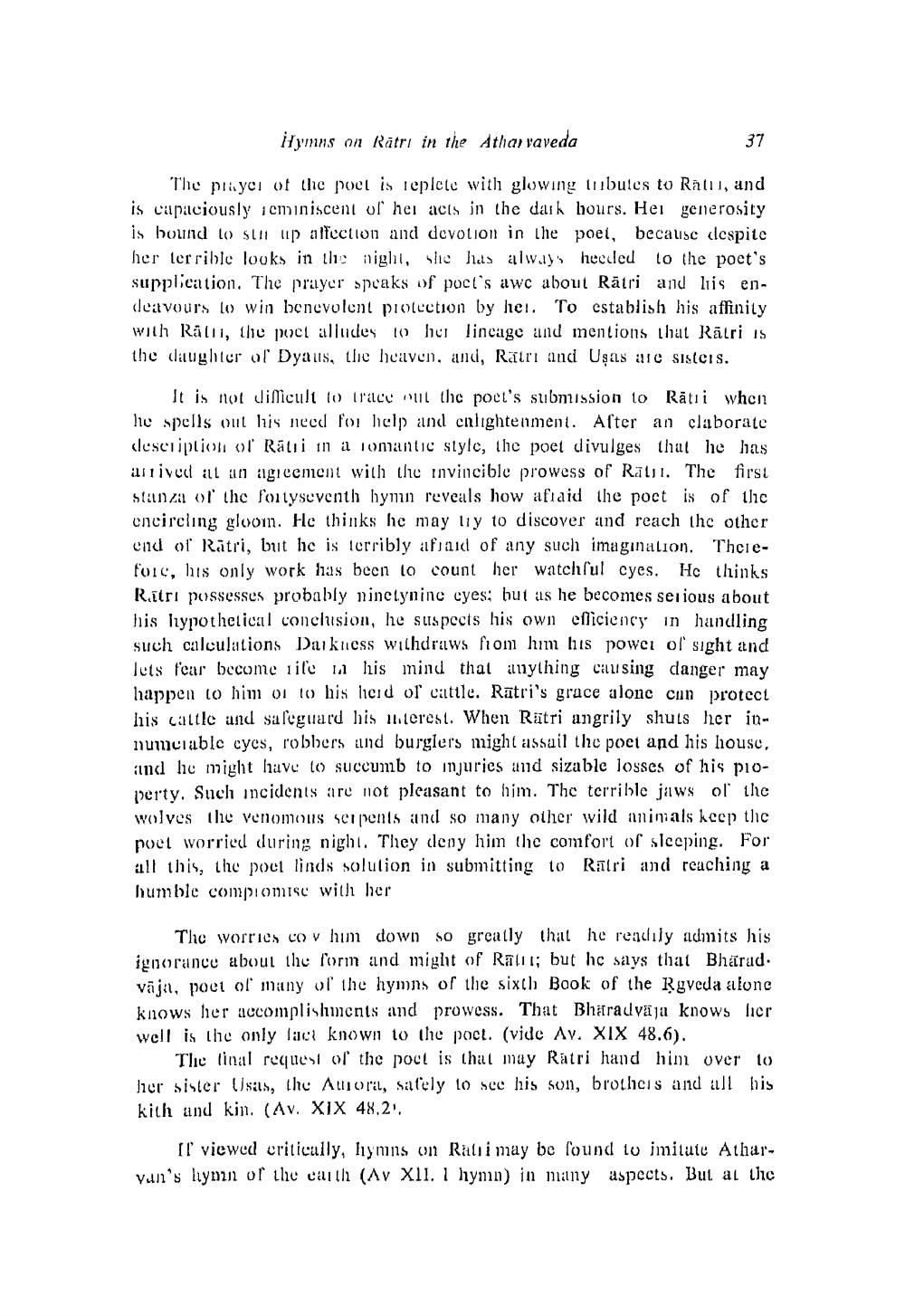________________
Hymns on Rātri in the Athai vaveda
37
The prayer of the poet is replete with glowing uubutes to Ratu, and is capaciously ieminiscent of hei acts in the dark hours. Hei generosity is bound to still affection and devotion in the poet, because despite her terrible looks in the night, she has always needed to the poet's supplication. The prayer speaks of poet's a wc about Rātri and luis endeavours to win benevolent protection by lici. To establish his affinity with Ralli, the poet alludes 10 hu lincage and mentions that Rātri is the daughter of Dyaus, the heaven, and, Rātri and Uşas ale sisteis.
It is not JiNicult to tace lil the poet's submission to Ratri when he spells out his need for help and enlightenment. After an claborate description of Rātii in a romantic style, the poet divulges that he has arrived at an agreement with the invincible prowess of Rail. The first stanza of the fortyseventh hymn reveals how afraid the poet is of the encircling gloom. He thinks he may liy to discover and reach the other end of Rātri, but lic is terribly afraid of any such imagination. Theiefore, his only work has been to count her watchful cyes. He thinks Ritri possesses probably ninetynine cyes: hut as he becomes serious about his liypothetical conclusion, he suspects his own efliciency in handling such calculations Darkness withdraws from him his power of sight and lets fear become ile ul his mind that anything causing danger may happen to him on to his licid ol' cattle. Rātri's grace alone con protect liis cattle and safeguard his interest. When Rātri angrily shuts her innunciable cycs, robhers and burgler's might assail the poet and his house, and he might have to succumb to injuries and sizable losses of his property. Such incidents are not pleasant to him. The terrible jaws of the wolves the venomous serpents and so many other wild animals keep the poet worried during night. They deny him the comfort of sleeping. For all this, the poet linds solution in submitting to Ratri and reaching a humble compromise with her
The worries co v hun down so greatly that he readily admits his ignorance about the form and might of Ralis; but he says that Bhärad. vāja, poet of many of the hymns of the sixth Book of the Rgveda alone knows her accomplishments and prowess. That Bharadvaja knows hier well is the only lact known to the poct. (vide Av. XIX 48.6).
The final request of the pool is that may Ratri hand him over to her sister Usas, thu Amora, sately to see his son, brothers and all his kith and kin. (Av. XIX 48,2'.
Il viewed critically, hymns on Rali may be found to imitate Atharvan's liynin of the canth (Av X11. 1 hymn) in many aspects. But at the




